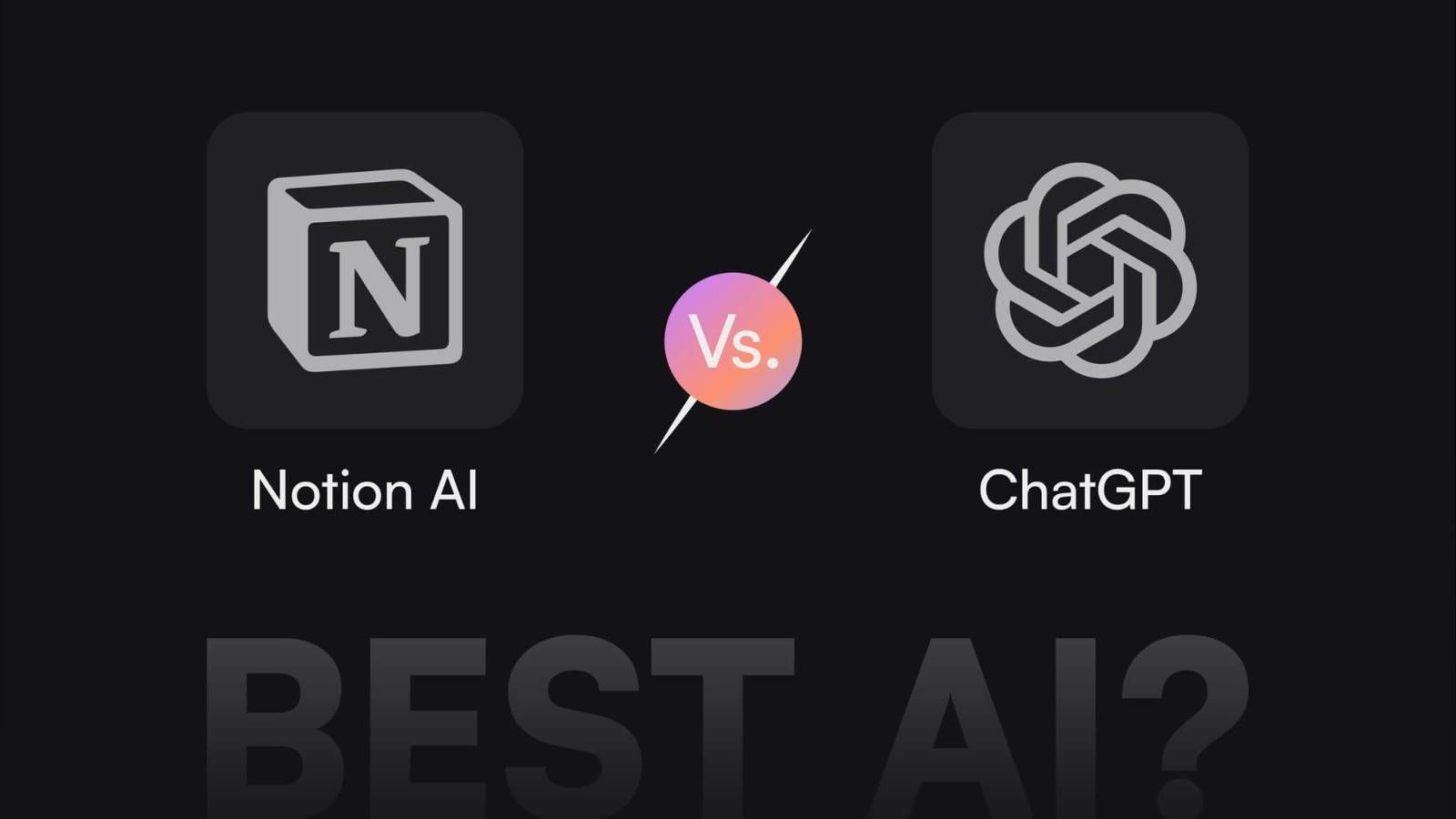

Let’s learn more about this topic below with Bottle Flip. Notion AI and ChatGPT are two powerful AI tools that have gained significant attention in recent years. Both offer unique features and capabilities for enhancing productivity and creativity.
In the ever-evolving landscape of artificial intelligence, Notion AI and ChatGPT have emerged as two prominent tools that are revolutionizing the way students and creators approach their work. These AI-powered assistants offer a wide range of features designed to enhance productivity, streamline workflows, and spark creativity. As the demand for efficient and intelligent tools continues to grow, it’s essential to understand the strengths and limitations of each platform to determine which one best suits your needs.
Notion AI, an extension of the popular collaborative workspace Notion, integrates AI capabilities directly into its existing ecosystem. This seamless integration allows users to leverage AI-powered features without leaving their familiar work environment. On the other hand, ChatGPT, developed by OpenAI, is a standalone conversational AI model that can be accessed through various interfaces and platforms. Both tools have garnered attention for their ability to assist with tasks such as writing, research, and problem-solving.
For students, these AI tools offer a wealth of possibilities to enhance their learning experience. From generating study materials and summarizing complex texts to providing explanations for difficult concepts, Notion AI and ChatGPT can serve as valuable study companions. Content creators, including writers, designers, and marketers, can harness the power of these AI assistants to overcome creative blocks, generate ideas, and streamline their content production process.
When comparing Notion AI and ChatGPT, it’s important to examine their key features and capabilities to understand how they can benefit different user groups. Notion AI’s integration with the Notion workspace provides a unique advantage for users already familiar with the platform. It offers AI-powered writing assistance, content summarization, and task management features that seamlessly blend with Notion’s existing functionality.
One of Notion AI’s standout features is its ability to generate content based on existing information within a user’s Notion workspace. This context-aware approach allows for more personalized and relevant outputs, making it particularly useful for project management, note-taking, and collaborative work. Students can leverage this feature to create study guides, summarize lecture notes, and generate questions for self-assessment.
ChatGPT, on the other hand, excels in its versatility and broad knowledge base. As a large language model trained on vast amounts of data, it can engage in conversations on a wide range of topics, provide explanations, and assist with various types of writing tasks. Its strength lies in its ability to understand and generate human-like text, making it an invaluable tool for brainstorming, research, and creative writing.
For content creators, ChatGPT can serve as a powerful ideation tool, helping to generate content outlines, suggest alternative phrasings, and even assist in creating entire articles or scripts. Its ability to understand context and maintain coherence across longer conversations makes it particularly useful for in-depth research and complex writing tasks.
Both Notion AI and ChatGPT offer robust writing assistance features, but their approaches differ slightly. Notion AI’s writing capabilities are deeply integrated into the Notion interface, allowing users to generate content, expand on ideas, and refine their writing without leaving their workspace. This seamless integration is particularly beneficial for students who want to improve their note-taking and essay-writing skills within a familiar environment.
ChatGPT’s writing assistance is more conversational in nature. Users can engage in a back-and-forth dialogue with the AI, refining their ideas and receiving suggestions in real-time. This interactive approach can be especially helpful for content creators who want to explore different angles or perspectives on a topic before committing to a specific direction.
In terms of content generation, both tools can produce high-quality text on a variety of subjects. However, ChatGPT’s broader knowledge base gives it an edge when it comes to generating content on niche or specialized topics. This makes it a valuable resource for students researching unfamiliar subjects or content creators looking to explore new areas of expertise.
For students and creators alike, the ability to efficiently research and synthesize information is crucial. Notion AI’s integration with existing Notion databases and pages allows users to quickly summarize and extract key information from their own content. This feature is particularly useful for students reviewing large amounts of study material or content creators organizing research for their projects.
ChatGPT’s strength in research lies in its ability to provide quick, concise answers to specific questions and offer explanations on complex topics. Students can use this feature to gain a better understanding of difficult concepts or to explore different perspectives on a subject. Content creators can leverage ChatGPT’s research capabilities to gather background information, fact-check their work, or discover new angles for their content.
Both tools can assist in the process of information synthesis, helping users to identify key themes, draw connections between different ideas, and organize information in a logical manner. This can be particularly beneficial for students working on literature reviews or content creators developing comprehensive guides on specific topics.
The user experience and accessibility of AI tools play a crucial role in their effectiveness for both students and content creators. Notion AI’s integration into the existing Notion platform provides a seamless experience for users already familiar with the workspace. The AI features are easily accessible through the slash command menu, making it simple to invoke AI assistance while working on any task within Notion.
This integrated approach can be particularly beneficial for students who use Notion for note-taking, project management, and collaboration. The ability to access AI-powered features without switching between different applications can help maintain focus and improve overall productivity. Content creators who rely on Notion for organizing their ideas and managing their projects will find the AI integration a natural extension of their existing workflow.
ChatGPT, being a standalone conversational AI, offers a different user experience. It can be accessed through various interfaces, including web-based platforms and API integrations. This flexibility allows users to interact with ChatGPT in a way that best suits their preferences and work style. For students and creators who prefer a more conversational approach to problem-solving and ideation, ChatGPT’s chat-based interface can feel more intuitive and engaging.
However, the standalone nature of ChatGPT means that users may need to switch between different applications or platforms to incorporate its outputs into their work. This can be a minor inconvenience for some users, particularly those who prefer a more integrated workflow.
The learning curve associated with AI tools can significantly impact their adoption and effectiveness. Notion AI’s integration into the familiar Notion interface means that existing users can quickly adapt to its AI-powered features. The contextual nature of its suggestions and outputs also helps users understand how to leverage the AI effectively within their existing workflows.
For students new to Notion, there may be an initial learning curve in understanding the platform’s overall functionality. However, once familiar with Notion’s basic features, incorporating AI assistance becomes relatively straightforward. Content creators already using Notion for their work will find the AI features a natural extension of their existing tools, requiring minimal additional learning.
ChatGPT’s learning curve is primarily centered around understanding how to phrase queries and prompts effectively to get the desired results. While its conversational interface is intuitive, users may need to experiment with different approaches to fully harness its capabilities. This experimentation process can be both a challenge and an opportunity for students and creators to refine their critical thinking and problem-solving skills.
The adaptability of these AI tools to different tasks and subjects is another important consideration. Notion AI’s context-aware approach allows it to adapt to the specific content and structure of a user’s Notion workspace. This can be particularly beneficial for students working on long-term projects or content creators managing multiple clients or topics.
ChatGPT’s broad knowledge base and flexibility make it highly adaptable to a wide range of tasks and subjects. However, users may need to provide more context or guidance to ensure the AI’s outputs align with their specific needs and goals.
One of the primary reasons students and content creators turn to AI tools is to enhance their productivity and streamline their workflows. Both Notion AI and ChatGPT offer significant productivity benefits, but their approaches and areas of focus differ.
Notion AI’s integration into the Notion workspace allows for seamless workflow enhancements across various aspects of project management and content creation. For students, this can mean more efficient note-taking, easier organization of study materials